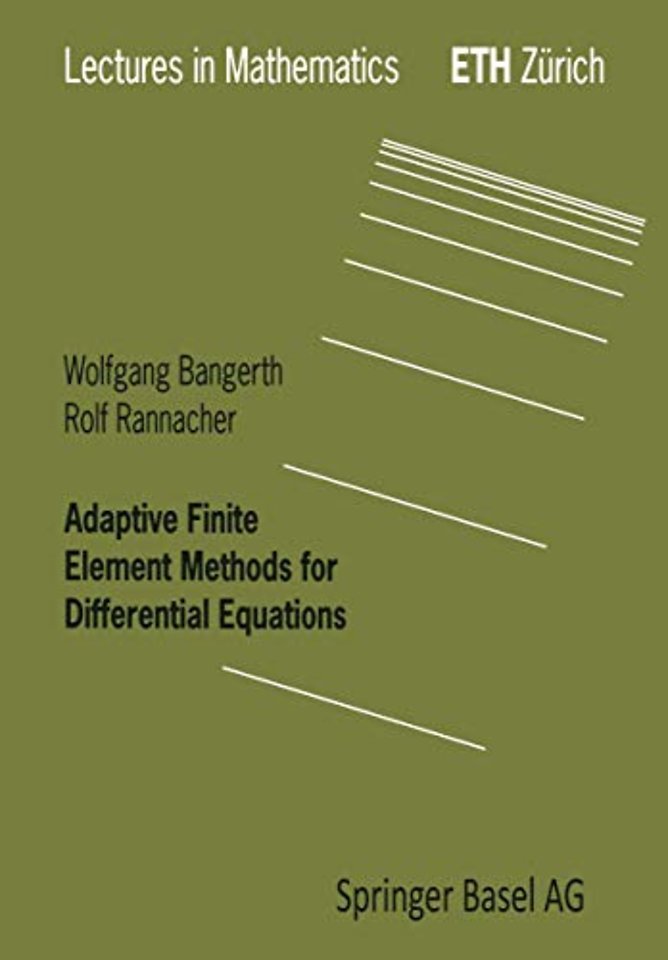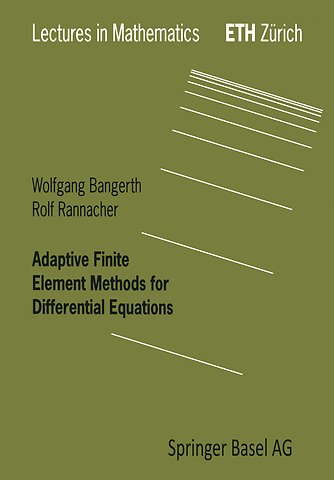Adaptive Finite Element Methods for Differential Equations
Samenvatting
These Lecture Notes have been compiled from the material presented by the second author in a lecture series ('Nachdiplomvorlesung') at the Department of Mathematics of the ETH Zurich during the summer term 2002. Concepts of 'self adaptivity' in the numerical solution of differential equations are discussed with emphasis on Galerkin finite element methods. The key issues are a posteriori er ror estimation and automatic mesh adaptation. Besides the traditional approach of energy-norm error control, a new duality-based technique, the Dual Weighted Residual method (or shortly D WR method) for goal-oriented error estimation is discussed in detail. This method aims at economical computation of arbitrary quantities of physical interest by properly adapting the computational mesh. This is typically required in the design cycles of technical applications. For example, the drag coefficient of a body immersed in a viscous flow is computed, then it is minimized by varying certain control parameters, and finally the stability of the resulting flow is investigated by solving an eigenvalue problem. 'Goal-oriented' adaptivity is designed to achieve these tasks with minimal cost. The basics of the DWR method and various of its applications are described in the following survey articles: R. Rannacher [114], Error control in finite element computations. In: Proc. of Summer School Error Control and Adaptivity in Scientific Computing (H. Bulgak and C. Zenger, eds), pp. 247-278. Kluwer Academic Publishers, 1998. M. Braack and R. Rannacher [42], Adaptive finite element methods for low Mach-number flows with chemical reactions.

